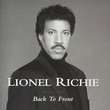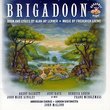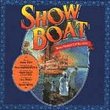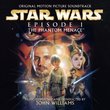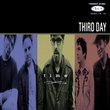| All Artists: Houston Grand Opera Cast, John DeMain, Jack O'Brien Title: Porgy & Bess (Highlights) Members Wishing: 0 Total Copies: 0 Label: RCA Release Date: 5/11/1993 Genres: Soundtracks, Classical, Broadway & Vocalists Styles: Opera & Classical Vocal, Musicals Number of Discs: 1 SwapaCD Credits: 1 Other Editions: George Gershwin's "Porgy & Bess" UPCs: 078635210927, 078635468021, 078635468045 |
Search - Houston Grand Opera Cast, John DeMain, Jack O'Brien :: Porgy & Bess (Highlights)
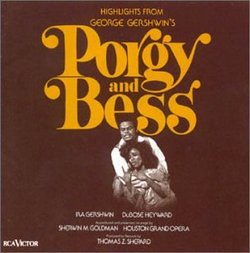 | Houston Grand Opera Cast, John DeMain, Jack O'Brien Porgy & Bess (Highlights) Genres: Soundtracks, Classical, Broadway & Vocalists
|
Larger Image |
CD DetailsSimilarly Requested CDs
|
CD ReviewsBeautiful, Exciting Recording of a Masterpiece Jaime J. Weinman | Canada | 09/15/1999 (5 out of 5 stars) "Forget the overrated, overblown Simon Rattle version on EMI. This recording, based on the famous Houston Grand Opera production, is the one to have. It has all the precision and musicality of the best opera recordings, yet with the theatrical excitement, the sense of involvement, that you get in the best Broadway cast albums--in fact, this recording was made (in only three days) while the cast was busy performing this production on Broadway.Where to start in cataloguing the virtues of this set? Well, start with the conducting of John DeMain. His pacing of the work is excellent, balancing the operatic and "popular" elements just right, and never overdoing things (unlike Rattle, who always overdoes things). The orchestra, while clearly smaller than Rattle's London Philharmonic, plays well. Donnie Ray Albert is a fine Porgy, sometimes a bit strained at the top but with generally excellent singing and characterization. Clamma Dale's Bess won her awards and acclaim; she never went on to the stardom that was predicted for her, but luckily her extraordinary performance is preserved on these discs. I could go on, but there's no need, because there are no weak performers in this cast, and they all have the ensemble feel and sense of timing that comes from performing the work on the stage together for so many evenings.The studio sound is excellent: Producer Thomas Z. Shepard goes all-out for sound effects, atmospheric touches, and stereo movement, all of which enhances the drama and the feeling of experiencing a real performance--but with the advantages that studio recording brings.Though this is clearly the first choice, there are other good recordings of PORGY. The 1951 recording (produced by Shepard's mentor Goddard Lieberson) is very good, but heavily cut and in mono sound. The 1969 recording under Lorin Maazel is beautifully sung, if a bit undramatic. Against all this competition, the oft-recommended Rattle seems like a distinct also-ran, for people who wish that PORGY had been written by somebody--anybody-- other than Gershwin. Anyway, this RCA recording is definitely the first choice. Grab it." The one by which all PORGYS are measured Mark Andrew Lawrence | Toronto | 02/19/2005 (5 out of 5 stars) "Composer Stephen Sondheim has frequently cited PORGY AND BESS as his favourite calling it "a gift from above." And indeed it is. And you could not ask for a better recording than this lavish set from the 1976 Houston Grand Opera, lovingly translated to discs by Thomas Sheppard with the same care and dedication he brings to his original Broadway cast recordings. This album puts you centre stage with extensive use of sound effects and creative use of the stereo spread. The cast is perfection, honed by having performed the show live several times before going into the RCA studios. It's packed with a full libretto and synopsis. The other "complete" recordings don't measure up. London's is correct but uninspired. EMI's set is well sung but lacks theatricality. All of the elements are in perfect balance on this set. The old Columbia 1951 album was complete in its day but musicologists have since restored much of the material cut before the Broadway premiere. Among the highlights discs are the Decca set featuring some of the cast members from both the 1935 and 1942 Broadway productions. A 1950s CD featuring Leontyne Price and William Warfield offers the key arias in a well sung collection. Readers Digest offers excerpts in their Gershwin CD set featuring a woefully bad Porgy, Valentine Pringle. There are also a variety of Jazz interpretations. A strange 1956 Bethlehem Jazz album with Mel Torme and Frances Faye on Rhino, a highly prized album with Lena Horne and Harry Belafonte, and albums by Sammy Davis Jr and Caremen MacRae, Ella Fitzgerald, and Miles Davis. Sammy Davis also appeared in the 1959 Samual Goldwyn film version with Sidney Poitier and Dorthy Dandridge. The film was withdrawn from circulation by the Gershwin estate in 1974 and has rarely been seen since. The Columbia Records "soundtrack" album was briefly available from SONY on CD but it too has been withdrawn. (Strangely, contract problems prevented Sammy Davis Jr from appearing on that album and his songs were redone for the record by Cab Calloway!) It is still the preferred version of "highlights" from the score for many listeners who enjoy the well-sung program and lush orchestrations. " The best Helpful Reviewer | Virginia USA | 11/16/1999 (5 out of 5 stars) "The previous writer's review is exceptionally insightful and describes perfectly and comprehensively the many merits of this production and this recording. My only previous exposure to a full-length "Porgy" was the Rattle version, which in comparison to this production is found seriously lacking. Owing primarily to its pacing, the quality of the voices, and its effective and sincere characterizations, this production is without a doubt the best uncut version available. What is perhaps most impressive is the degree to which the singers and the orchestra work together to form a true ensemble and the resulting clarity of interpretation. This is not a program of "stars," and the usual "hits" are well-integrated into the fabric of the entire production. Lovely. Certain to become one of the treasures of your collection."
|

 Track Listings (14) - Disc #1
Track Listings (14) - Disc #1



